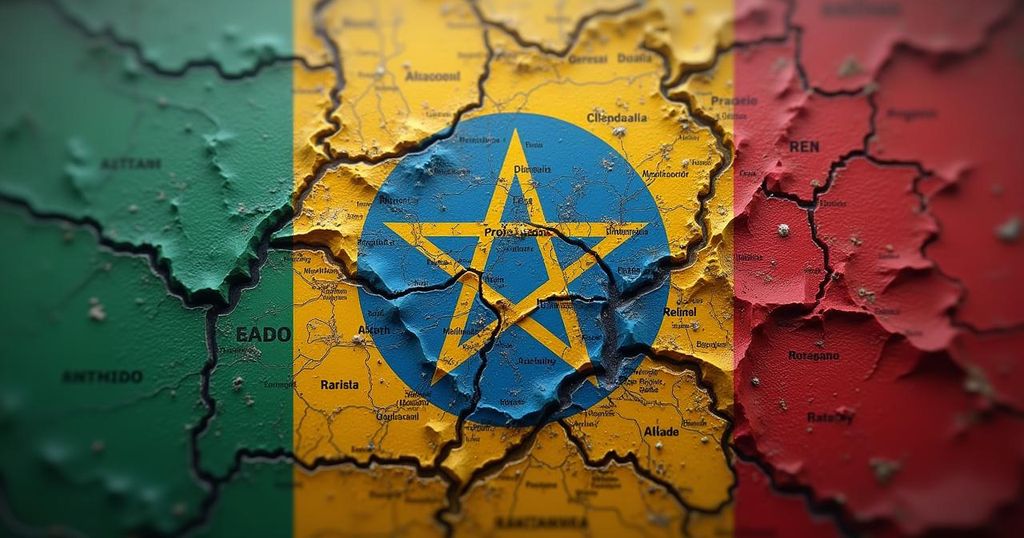Eritrea and Regional Allies Unite Against Ethiopian Influence
Eritrea, Somalia, and Egypt held a trilateral summit in Asmara on October 10, led by Isaias Afwerki. The leaders aimed to address external interference in their countries’ affairs, strengthen Somali institutions to combat terrorism, and deepen military cooperation against Ethiopia. Tensions have escalated due to Ethiopia’s agreement with Somaliland, threatening Somalia’s territorial claims, and Egypt’s ongoing disputes with Ethiopia over water resources. While military confrontation is currently unlikely, the diplomatic climate remains strained as past reconciliations have deteriorated.
On October 10, Eritrea’s long-standing leader, Isaias Afwerki, convened a significant trilateral summit in Asmara with President Hassan Sheikh Mohamud of Somalia and President Abdel Fattah el-Sisi of Egypt. The primary focus of this meeting was to deliberate upon strategies to “confront interference in the internal affairs of the countries of the region under any pretext or justification,” as articulated in a joint statement following the discussions. Furthermore, the leaders reached a consensus to enhance cooperative efforts aimed at strengthening Somali state institutions, thereby enabling Somalia to effectively combat terrorism, secure its territorial borders, and uphold its sovereignty. This summit is set against a backdrop of escalating tensions among the involved nations and Ethiopia. Following the signing of a memorandum of understanding (MoU) between Ethiopia and the self-declared Somaliland in January, relations have deteriorated significantly. Ethiopia indicated a willingness to recognize Somaliland’s independence in exchange for leasing a coastal strip to establish a naval base, a move that provoked outrage in Somalia, which claims Somaliland as its integral territory. Egypt has taken this opportunity to increase its pressure on Ethiopia, particularly considering the ongoing disputes regarding the Grand Ethiopian Renaissance Dam (GERD), which Egypt perceives as a potential threat to its water supply. In August, Egypt engaged in a military cooperation agreement with Somalia and subsequently supplied two shipments of weapons to the Somali government. Additionally, there has been discussion regarding the potential deployment of Egyptian troops to Somalia to replace the presence of Ethiopian forces currently engaged in operations against Al-Shabaab. Somalia has warned of an impending expulsion of all Ethiopian troops by the end of the year unless the MoU is annulled. Furthermore, despite Eritrea’s alliance with Ethiopia during the civil conflict in Tigray, relations between Asmara and Addis Ababa have soured. Afwerki has expressed discontent regarding the peace agreement reached between the Ethiopian government and the Tigray People’s Liberation Front (TPLF) in November 2022. There are apprehensions in Eritrea over Ethiopia’s intentions regarding its ports, which Eritrea lost access to following its secession in 1993. Analysts suggest that Afwerki perceives a direct conflict as a looming possibility and is hence forging closer ties with Ethiopia’s adversaries to establish a protective network around his regime. Nevertheless, experts caution that a direct military confrontation remains unlikely in the near term due to the fragility of Somalia’s state apparatus, Egypt’s internal challenges, and ongoing conflicts faced by both Eritrea and Ethiopia. The current dynamics appear to be more a display of diplomatic posturing than an indication of imminent military conflict. However, observers note that the recent trends in diplomacy between Ethiopia and Eritrea evoke concerns, particularly as the previous rapprochement efforts appear to have eroded, leading to a reversion to a state of “no war, no peace.”
The article discusses the geopolitical tensions in the Horn of Africa, particularly focusing on the recent trilateral summit involving Eritrea, Somalia, and Egypt. It highlights the complicated relationship dynamics between these countries and Ethiopia, marked by historical grievances and current territorial disputes. The author outlines how recent developments, including Ethiopia’s controversial MoU with Somaliland and military agreements with Somalia, have catalyzed a strategic shift in alliances that could impact regional stability. The background provides context regarding Eritrea’s bitter relationship with Ethiopia and the broader implications of military and diplomatic maneuvers within the region.
In conclusion, the trilateral summit hosted by Isaias Afwerki underscores the growing alliances in the Horn of Africa aimed at countering Ethiopian influence. The tensions stemming from Ethiopia’s MoU with Somaliland and the subsequent militarization efforts by Egypt signify a precarious shift towards confrontation among these nations. While the immediate prospect of military conflict may be limited, the underlying animosities and strategic alignments pose significant risks for regional stability in the foreseeable future. The reversal of previous rapprochements also indicates a concerning trend of increasing antagonism among nations once moving towards peaceful coexistence.
Original Source: www.theafricareport.com




Post Comment